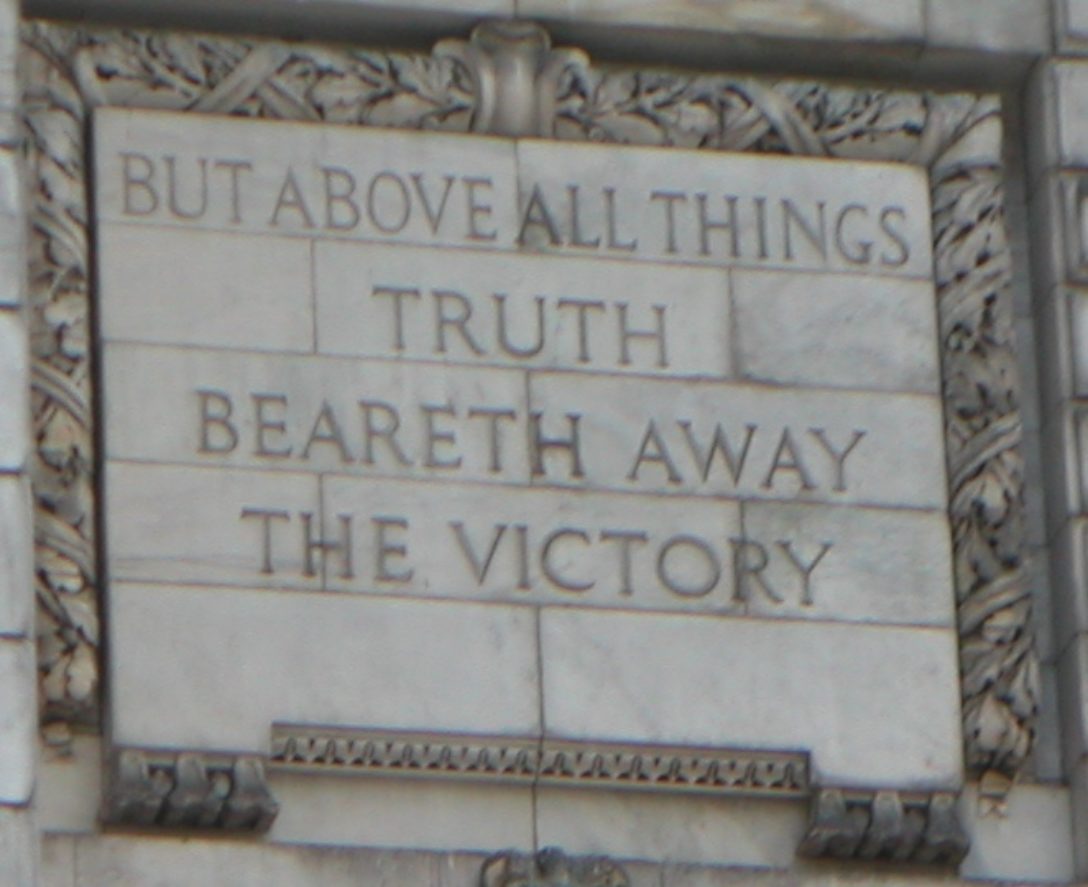A War of World Views
We are about to see an even stormier time in our country, and probably throughout the world. It will be an acceleration of the ongoing struggle between world views.
In Western culture there are two main lines of world view: man-centered (humanism) and God-centered (Christianity and Judaism). Christianity was the prevailing view of the western world and the principle driving force of western society for centuries, at least up until the Renaissance (1300’s or so), when humanistic thinking began to compete with Christianity. For the past 500 years, the conflict between these world views has progressively intensified, especially fueled by the Enlightenment, Darwinism, and Marxism. In fairness, the advance of humanistic ideology has been facilitated by missteps attributed to Christianity, especially religious wars and Church-sponsored “terrorism” (for example, the Inquisition), among other things.
Europe has succumbed. In the USA the conflict has come to a level of division that is clearly dysfunctional; we are in a culture war. While tolerance and civility have become scarce, the threat to freedom, perhaps the principal ideal of America, has become very real. We are choosing sides and taking names. But, this conflict is not just political, it comes back to the clash between world views.
A simple word defines why these views lead to conflict and division: the word is truth. Christianity recognizes universal/absolute truth; humanism specifically does not. The acknowledgement of truth logically leads to the acknowledgement of falsity, that is, right and wrong. Humanism cannot tolerate this, as it forbids judging right and wrong based on truth, but only by social consensus, and without individual judgement.
Christianity holds that God exists and is the source of truth; and true Christians hold that God essentially is truth. That truth is revealed in the Bible, in the nature of God and in his commandments, and in his creation. Christians cannot yield on essential truths because to do so is to deny God. Secularists would do well to at least understand this.
Humanism holds that God does not exist, at least not in any tangible sense, and that there is no absolute truth. Without God there is no basis for truth, so why would they believe in absolute truth? In fact, the essence of humanism/secularism, which implies atheism, leads to chaos and despair in its ultimate conclusion, because there is no grounding and there is no meaning to life. Man is simply a machine, or an animal without a soul. Without meaning or hope, the only recourse is to synthesize meaning and hope by human effort. This is not without merit, for the betterment of man: happiness, health, and peace are universal longings. But, meaning is also a universal longing and these goals, even if they are produced to some measure, do not create meaning.
The striving for the improvement of man, by man’s effort alone, has led to Marxism, Scientism, Progressivism and various other “isms”, which then become god, with all the religious fervor implied, and required. Since the foundation – which is man himself – is so irrational and shaky, this religion (humanism) requires universal assent. Any contrary view is the subject of derision, hate, and even violence. All of this is ostensibly to achieve a utopia of happiness, health, and peace, and even eternal life (through science). This is the trajectory of humanism, the long view, but the current battles are to overthrow: Capitalism, the Constitution, Christianity, Family, and God to achieve their ends. Furthermore, it is a globalist agenda.
The humanist juggernaut has picked up steam and is poised to overcome Christianity in the USA. While the progressive agenda has advanced, the family, the Constitution, and freedom have been compromised. Marriage and gender have been redefined, but in an open sense (no absolutes, so anything goes, and it will go further). Christians are shamed, hated, ridiculed, and sued for failure to conform. The USA is set to become a European-style secular country (arguably, already has), but the further movement to humanism and globalism will accelerate, as the events of 2020 illustrate. To a large extent, the pandemic has fueled this progression. The panic and fear it has instilled has provided the perfect opportunity for faithful reliance on science and leaders to save us from calamity. Most will be willing to follow and obey these leaders, from socialism to the point of totalitarianism, because the consensus requires it.
The information media, social media, global transportation and international commerce assure this will happen. The everyday brands of our time, Facebook, Amazon, Twitter, Google, Apple, Wikipedia, etc, have astounding influence over our lives, information and government. Their secularist CEOs including Bezos, Zuckerberg, Pichai, Dorsey and Cook exert their will over the will of the people. They can do it because we have inadvertently empowered them.
Christians, we can’t go there with them. If what we believe is true, we have to hold the line, not just on our personal choices, but on what our culture accepts. There either is absolute truth, in which case it matters very much what one believes and does, or there is no absolute truth, in which case it doesn’t matter. Values based on a synthesized culture, for the progression of human flourishing have no ultimate value, as there is no true basis, only survival and pleasure. We must not expect a political fix for the decay of our culture. Rather, we must strengthen our resolve in the family and the church, under God. We must be very alert and wary of the influence of the media, entertainment, public education and even commerce on ourselves and our children.
Copyright 11/2020 Alvin Perkins
